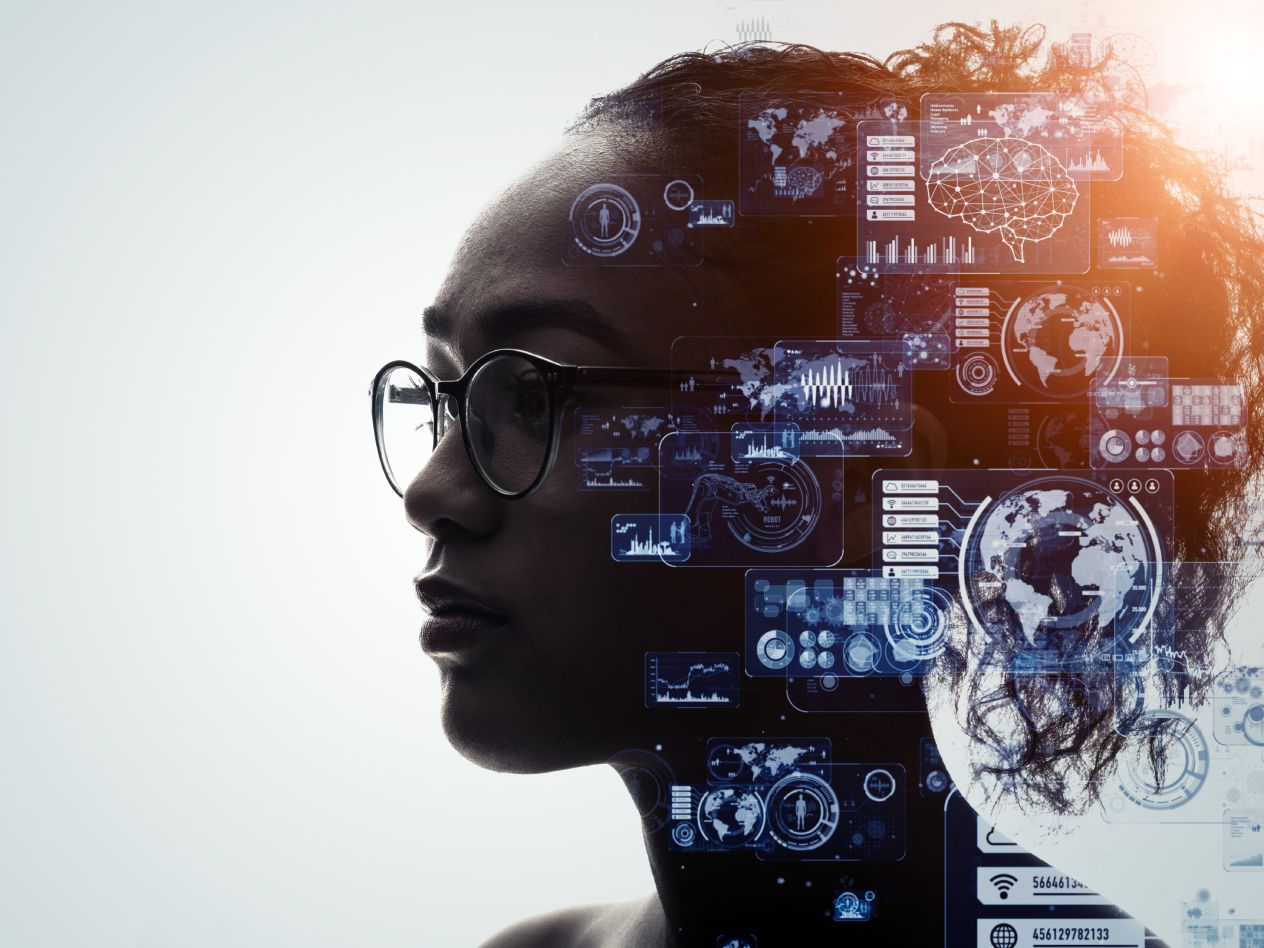Examining the changing nature of work: technology advances and the human element
- January 3, 2024
- By WashU Olin Business School
- 3 minute read

The arrival and evolution of generative artificial intelligence is changing the nature of work.
Businesses are busy trying to understand how generative AI-based products and tools will impact them. Will they need to pivot their product focus? How should they adapt their customer and client interactions? Will their teams require a significant transformation to remain competitive?
To answer these questions, leaders must explore generative AI’s impact on business and how new technologies shape productivity.
What is the impact of emerging technologies on business?
The first thing to notice about emerging technologies is the gap between expectation and reality. For instance, while there’s an expectation that robots may replace human roles, the reality is a natural language processing tool like ChatGPT is far from a human replacement. It’s more like a vehicle for humans to organize and share their thoughts.
The second thing to notice is that AI is changing the dynamics between technology, employees and the companies they work for. Leaders are finding that the biggest challenge of AI is not learning how to use it or fix it when it breaks but rather how to manage it as a new team member. They’re finding that they need more human creativity than ever but also need to make way for AI-based tools to take over their tasks.
Considering AI’s opportunities, leaders will need to work with their employees to help them improve and redefine their careers. Generative AI’s impact on business will not affect everyone equally. In fact, according to research by IBM, entry-level employees are expected to experience the biggest change.
What will technological leadership in business look like?
The above challenges become complicated, considering that technology trends in business will continue to change rapidly. Companies will need to keep adjusting to incorporate them.
Employee needs are evolving, with automation technologies predicted to transform 20% to 30% of work time in the coming decade.
What does that mean for leadership? How can leaders navigate this changing nature of work? How can they guide their teams safely and with an eye for opportunity?
Despite automation affecting entry-level employees first, leaders must also be adaptable. They will need flexibility to assess new technologies, understand their value for different use cases and be nimble enough to switch up tactics when new opportunities arise.
Leaders will also need to manage different perspectives. They will need a bird’s eye view to understand how AI could help their companies grow and will also need to get into the weeds to understand how team members use generative tools in their workflows.
They will need to be ready to address the concerns and problems that come along with rapidly evolving technology. Privacy, cybersecurity, copyright and compliance impact industries differently. Leaders must create a workplace that proactively mitigates risk and empowers employees to work creatively without fear.
How do the skills learned in MBA programs help?
The MBA program at Olin is continually designed and molded in response to the world around it. That includes adapting curricula and methods with emerging technologies in mind. Olin’s faculty always tries to expose students to real-world conditions and problems. Its focus on experiential learning means students can test strategic thinking “in the wild” within real businesses and startups.
This trial-by-fire ethos also prepares graduates with skills learned in MBA programs to navigate complex dynamics between technology and employees. Students learn how to use digital tools and strategies to transform traditional modes of working, but they also learn in a people-first way, consistently applying their problem-solving to human pain points.
Digital transformation is at the forefront of Olin’s MBA because it’s at the forefront of business. Students learn how to implement and adopt the latest technology trends in business, guiding others in using technologies and leveraging a tool stack to create a unique competitive advantage.
The landscape of generative AI may look vastly different tomorrow and the day after. The good thing is that AI and MBA programs have much in common—they’re both made to evolve.
Media inquiries
For assistance with media inquiries and to find faculty experts, please contact Washington University Marketing & Communications.
Monday–Friday, 8:30 to 5 p.m.
Sara Savat
Senior News Director, Business and Social Sciences
